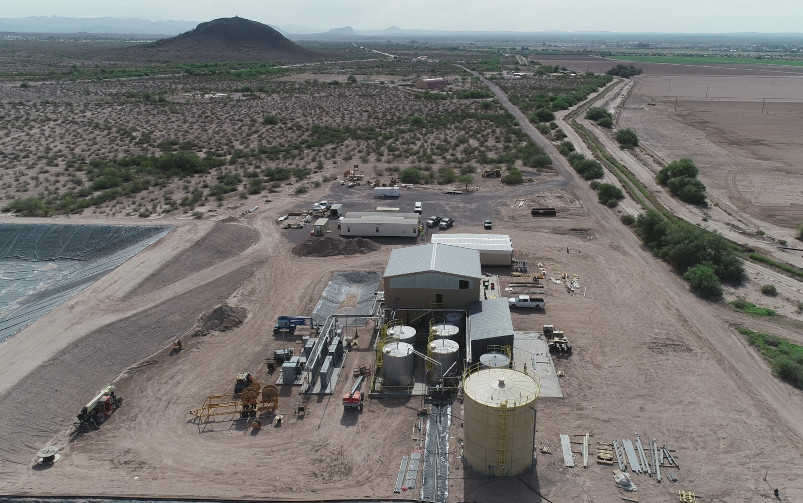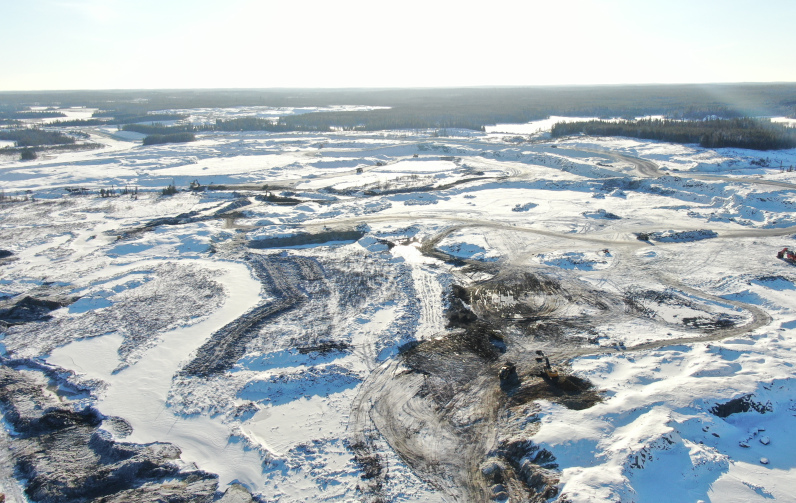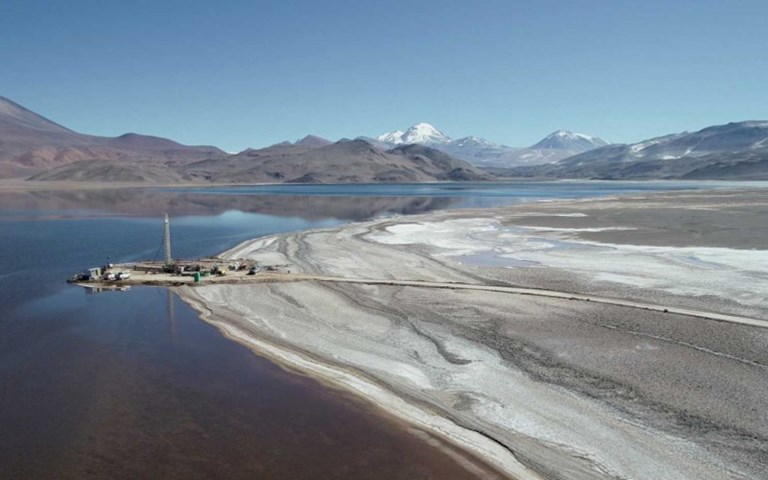Neo Lithium, which is being purchased by Zijin Mining Group, is progressing its 3Q lithium project in Argentina. Courtesy of Neo Lithium.
Welcome back to your weekly mining news recap, where we catch you up on some of the news you may have missed. This week’s headlines include Conservative and NDP MPs calling for a review of Zijin’s purchase of Neo Lithium, investment in the oil sands seeing a “significant” increase, and Champion Iron teaming up with Caterpillar.
Champion Iron is further electrifying its operations at Bloom Lake by teaming up with Caterpillar and implementing autonomous electric drilling technology. Champion will update the drilling system on the three current electric Caterpillar drills and, when the Bloom Lake expansion is complete, it will commission four more fully autonomous drills. The goal is to leverage data collected by the drills to optimize operations from drill to mill.
In a bid to preserve the Silverdaisy watershed, Imperial Metals Corporation has relinquished all Giant Copper mineral claims to British Columbia. Imperial acquired the claims in 1988 and will be compensated $24 million for their surrender. While Imperial president Brian Kynoch said the original objective was to proceed with exploration of the site, Imperial supports the agreement.
The Serbian government will no longer be proceeding with its plan to build a lithium mine after a series of protests that included blocking a major highway, reported Radio Free Europe. The project was being developed by Rio Tinto and was slated to be one of the largest lithium mines in the world. Due to environmental concerns, the over US$2 billion project will not move forward.
The Canadian Mining Innovation Council has created ReThinkMining Ventures, which will push the development and deployment of mining technology, as reported by Canadian Mining Journal. The for-profit subsidiary will help develop projects such as sensor-based ore sorting, deep underground mine development and continuous surface mining.
First Quantum Minerals and the government of Panama have come to an agreement to increase royalty payments at the Cobre Panama copper mine, as reported by Mining.com. The agreement includes US$375 million a year to the Panamanian government and in return, the company is guaranteed permission to continue operations at the mine during its lifespan. Reportedly, the government proposed a royalty of 12 to 16 per cent of the mine’s gross profits, a huge jump from the previous rate of two per cent of revenue.
162 contaminated mining sites across the territories need to be brought back to current environmental standards, putting Crown-Indigenous Relations and Northern Affairs Canada on the hook for $4 billion in environmental liabilities, as reported by The Hill Times. When the mines’ previous owners were unable to meet financial obligations, the federal government assumed responsibility for the sites. While remediation progress is being made on many of these sites, there are concerns that the economic opportunities generated by cleanups are not benefitting the impacted communities enough, and that current regulations have not prevented more mines from being abandoned.
A letter from Conservative and New Democrat MPs is calling for an emergency committee meeting after the China-based Zijin Mining Group announced plans to buy Canadian mining company, Neo Lithium, reports iPolitics. Though the sale was approved by shareholders, the letter cites concerns that the Liberal government chose not to conduct a national security review despite the critical mineral’s importance to Canada’s future prosperity. The sale was reported to be worth $960 million.
As the desire to meet global decarbonization goals increases, so does the need for metals such as copper. Canadian economist Patricia Mohr explained that a new metals super-cycle could be on the horizon as commodities jumped following the COVID-19 lockdowns. According to Mohr, copper could reach prices of $5 per pound in the latter half of the decade thanks to an expected drop in global copper supply and a supercharged demand from BEVs and renewable energy.
A new report commissioned by NRCan has been released, detailing the strategies and opportunities available by taking a circular-economy approach to mining operations. This strategy aims to eliminate waste by taking a normally wasteful process and giving it value such as reprocessing tailings minerals or reusing or donating used equipment.
Canada’s oil and natural gas industry will see a “significant” jump this year as investments will rise to $32.8 billion, a 22 per cent increase, thanks to higher prices, reported BNN Bloomberg. According to the Canadian Association of Petroleum Producers, however, Canada’s market share is still behind compared to other “top tier” jurisdictions, and that this investment growth will leave the industry approximately where it was before the COVID-19 pandemic.
That’s all for this week. If you’ve got feedback, you can always reach us at editor@cim.org. If you’ve got something to add, why not join the conversation on our Facebook, Twitter, LinkedIn or Instagram pages?




